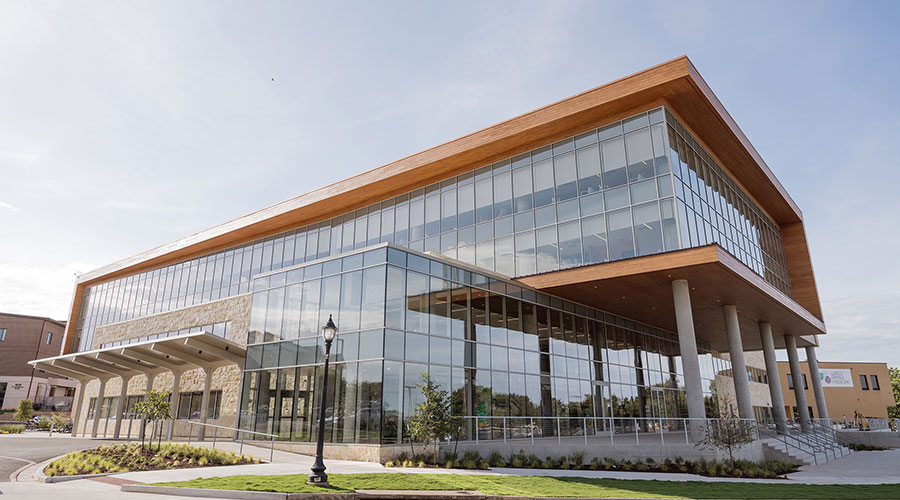Good nutrition is essential for good health, and that’s why every health care facility should prioritize patient nutrition education. Health professionals of all kinds, including physicians, nurses, nutritionists, and dieticians, must be equipped with the knowledge necessary to help patients make healthy choices about food. Whether patients are obese, managing a chronic condition like diabetes or heart disease, suffering from an eating disorder, or coping with a food allergy, nutrition education can improve treatment outcomes and lead to longer, healthier lives for many.
Nutrition makes a difference
The link between good nutrition and good health has long been understood. A healthy diet can help prevent many chronic conditions, including heart disease, diabetes, obesity, and even cancer. Nutrition counseling should form a vital part of primary care. Preventative nutrition counseling can help patients make the lifestyle choices they need to make to safeguard their good health. Preventing chronic illness saves all involved the expense and time involved in medical treatment, and of course, it saves the patient untold hours of suffering.
Many primary care providers don’t have the comprehensive nutrition education that registered dieticians and other nutrition professionals do. While medical school curriculums do cover nutrition, there’s definitely an important place for nutrition professionals on any health care team. A nutritionist or dietician who has received advanced training in nutrition is fully equipped to help patients take control of their own health care, by providing detailed nutrition counseling and working with primary care staff to make sure that patients are receiving the nutritional care they need.
Nutrition is vital to successful treatment
Of course, the role of nutrition in successful health care extends far beyond the realm of primary care. Nutrition also plays a crucial role in the treatment of acute and chronic illnesses. Dieticians and nutritionists can therefore facilitate favorable outcomes through nutritional counseling.
If your facility is a hospital, nursing home, or other facility that serves food, a nutrition expert can help you put together menus that support patient health. Patients may have very different nutritional needs, depending on their health status. Many conditions, such as cancer, directly influence patient nutrition by stifling appetite or making it hard to digest certain foods. Some patients may struggle to extract all of the nutrients from food, and these patients may require more nutrient-rich foods than others. Still other patients may require a diet lower in sugar, salt, or fat, or one consisting of soft, easy-to-eat foods. Some patients may not be capable of chewing and swallowing food at all, and may need a dietician to ensure that they get adequate nutrition through a feeding tube.
Many nutritionists work intimately with patients to make sure they understand their nutritional needs and are ready to face the challenge of meeting them. But staff also need to understand the importance of nutrition and nutritional care. In many facilities, such as hospitals, nutritionists and dieticians may not be available to explain every nutrition choice to patients. That’s where other providers can step in.
Of all the members of a care team, the nurses tend to spend the most time interacting with patients. Nurses make sure patients are comfortable and cared for on a day-to-day basis. They monitor patient recovery and are responsible for implementing many of the care plans put into place by physicians, dieticians, and others. It’s therefore often the nurses who must help patients understand the nutritional choices being made for them on a day-to-day basis.
Nutrition experts can help put together educational materials to help nurses, and other health care staff, understand the importance of nutrition as part of the average care plan. These programs can help staff, especially those members of staff who spend the most time with patients, to understand how they can best help patients to make lifestyle changes and stick with dietary requirements, even after they leave the facility.
Eating well is fundamental to good health. It’s an important part of preventative care and it’s also indispensable to the treatment of illness. Nutritionists, dieticians, and other experts trained in nutrition can help your facility guarantee a continued high standard of patient care. These professionals have the nutrition expertise to make sure that your patients regain — and maintain — their good health.

 Designing Hospitals for Wellness
Designing Hospitals for Wellness Baptist Health Announces New Cancer Care Center in Key West
Baptist Health Announces New Cancer Care Center in Key West Waco Family Medicine Achieves Savings and Bold Design with Wood Selections
Waco Family Medicine Achieves Savings and Bold Design with Wood Selections Alleged Ransomware Administrator Extradited from South Korea
Alleged Ransomware Administrator Extradited from South Korea Design Plans Unveiled for New Intermountain St. Vincent Regional Hospital
Design Plans Unveiled for New Intermountain St. Vincent Regional Hospital